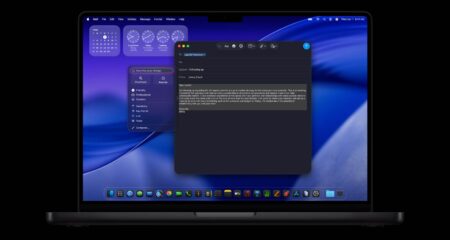
[By Duncan McLeod]
The international media is filled with tales of woe about BlackBerry maker Research In Motion (RIM). The Canadian smartphone company’s share price has lost half its value since the beginning of the year. Yet BlackBerry is SA’s sexiest youth brand. What gives?
“I have lost confidence. While I hide it at work, my passion has been sapped. I know I am not alone, the sentiment is widespread and it includes people within your own teams.”
This is from a devastating but anonymous open letter written to RIM co-CEOs Mike Lazaridis and Jim Balsillie, purportedly by a senior employee at the company. The letter criticises the company’s lack of overall focus and puts the boot in for its “shipping incomplete products that aren’t ready for the end user”, a clear reference to PlayBook, its belated entry into the tablet computer market, early versions of which lack key features like an e-mail client.
On the face of it, RIM does look like a company headed for trouble. It recently missed sales targets and is facing unprecedented levels of competition, especially from Apple, with its iPhone device, and from Google, which makes the fast-growing Android operating system for smartphones.
But is it tickets for RIM and BlackBerry? If SA were a microcosm of the BlackBerry universe, the answer to that question would be an emphatic “no”. Though it has lost ground, it remains the favoured device of many businesspeople.
But it’s in the youth market where the brand has achieved almost iconic status. Go into any school or university in SA and you’ll see youngsters everywhere cradling BlackBerrys. New research shows that one in two students at tertiary institutions want one.
Credit for the extraordinary success of the BlackBerry in the mass consumer market in SA has to go mainly to the recently departed regional director for sub-Saharan Africa, Deon Liebenberg. I recall Liebenberg telling me several years ago, before the BlackBerry craze swept the youth market, about how the company intended to shed its corporate suit — remember the devices used to be virtually the exclusive preserve of businesspeople who wanted to manage their e-mail on the go — and go after the retail consumer market.
I’ll admit I was doubtful that youngsters would embrace what was essentially a business tool. But thanks to cheap and uncapped data access and free text messaging through BlackBerry Messenger (BBM), Liebenberg proved my scepticism wrong. Now Liebenberg is headed to Korean electronics giant Samsung. It’s unclear whether anything should be read into that, but his decision to jump ship certainly comes at an interesting juncture.
Arguably RIM’s success in the consumer market could prove fleeting. Yes, BBM is a killer app, and youngsters have adopted it with the same relish they took to MXit a few years ago, but what’s to stop them moving to the next compelling offer that comes along? The answer is nothing. Already, BBM has challengers. Apple recently took the wraps off iMessage, a similar service for the iPhone. And Whatsapp, a free, device-independent instant messaging application, has caught on like wildfire this year. Unlike BBM, Whatsapp is cross-platform, meaning BlackBerry, iPhone, Android and Nokia users can communicate with each other. It’s no accident that Nokia is marketing the heck out of Whatsapp.
As cellular data prices come down — they’ve plummeted in the past year and will continue falling — the value of BlackBerry’s cheap, unmetered Internet packages will diminish. Yet the company still makes great handsets. Google and Apple have bruised BlackBerry in the battle of the smartphones. RIM has much work to do. But it’s too early to say that it’s lost the war.
- Duncan McLeod is editor of TechCentral; this column is also published in Financial Mail
- Subscribe to our free daily newsletter
- Follow us on Twitter or on Facebook




